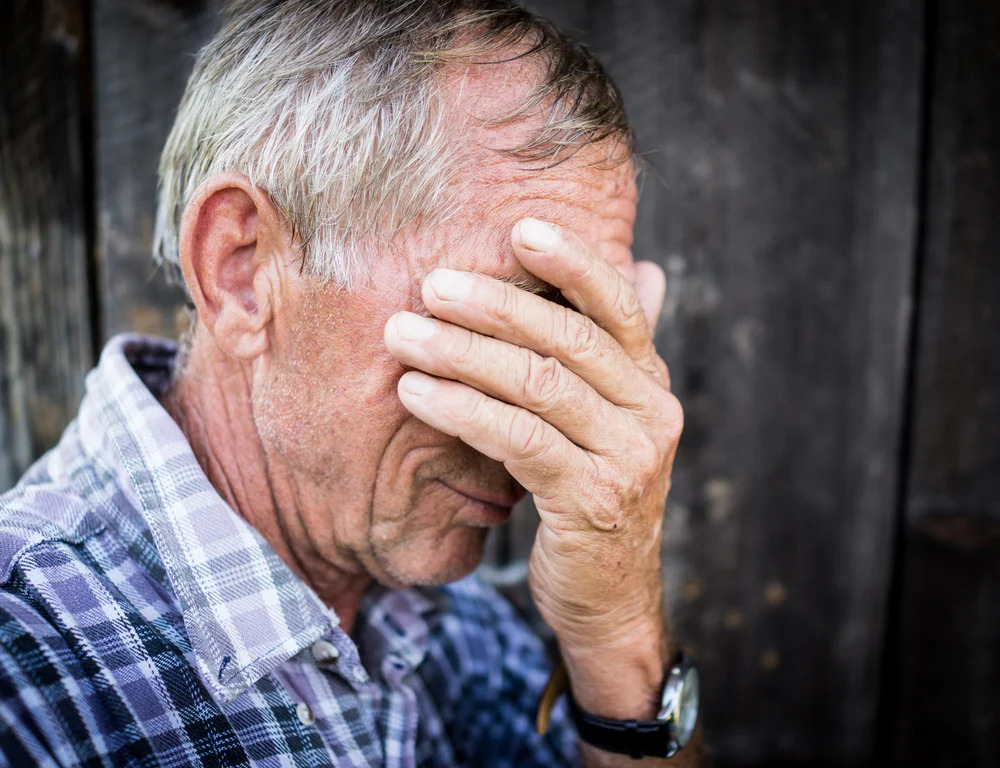
Late life depression is a common occurrence among seniors, but it is not necessarily a normal part of aging. In fact, studies show that most older adults feel satisfied with their lives, despite the emotional and physical changes associated with getting older. It’s a good idea for seniors to take stock of their physical and mental health and embrace positivity for a greater state of happiness and overall wellness.
Developing Depression Later in Life
Life changes are inevitable as you age. You may feel your support system diminish from what it once was, with travel, illness, or even death preoccupying the lives of your inner circle. Many seniors also navigate a new phase of life as they enter retirement. All of these changes may lead to feelings of uneasiness, stress, anxiety, or sadness. After a period of adjustment, many older adults regain their emotional balance, but those who do not may develop depression.
The first episode of a condition like bipolar disorder or major depressive disorder typically occurs in adolescence or early adulthood, but late-life depression is known to affect about 6 million Americans ages 65 and older.
Missing the Signs of Depression
Only 10% of seniors who suffer from depression receive treatment, likely due to misinformation or lack of resources surrounding mental health. The warning signs of depression for seniors are frequently confused with the effects of multiple other conditions and the medications used to treat them.
Similarly, depression impacts older people differently than younger people. Because of changes in an elderly person’s circumstances and the fact that people are expected to slow down as they age, doctors and loved ones often overlook signs of depression. This may result in delayed diagnosis and treatment, forcing many seniors to struggle unnecessarily with depression.
Depression Treatment for Seniors
So how does one enjoy their golden years when physical and emotional changes put you at a higher risk for depression? First and foremost, it’s important to evaluate your mental health and get help if needed. Depending on the severity of your depression and how long you’ve been suffering, we don’t advise taking on your depression alone. It’s important to advocate for yourself by speaking up about your symptoms to doctors or loved ones. From there, health professionals can work with you to find the right treatment plan.
Recent studies show that combination therapy has been associated with significantly higher rates of improvement in depressive symptoms, increased quality of life, and better treatment compliance. This is especially important for senior citizens who are already on multiple medications which may conflict with or negatively affect typical antidepressant medications.
For this reason, Ketamine Infusion Therapy and other alternative depression treatments can be useful when it comes to finding relief. According to a recent study in Current Psychiatric Reports, the use of ketamine treatments for depression led to a significant and sustained improvement in depression symptoms, making it a safe and promising treatment for geriatric patients.
Moreover, Ketamine Infusion Therapy has shown very successful results when used for neuroplasticity treatment. Psychiatrist and neuroscientist, Conor Liston, conducted a study which proved that ketamine treatments for depression help change the circuit function of the brain, which can improve symptoms in as quickly as three hours. As Ketamine Infusion Therapy continues, it enables the regrowth of the brain’s synapses, effectively aiding the process of neuroplasticity healing.
Laughter Is the Best Medicine
If you’re already receiving treatment for depression or are in the process of seeking treatment, another option to consider is the power of healthy living. A healthy body contributes to a healthy brain, and a healthy brain is more resistant to depression. Other than eating right and getting exercise, your outlook plays an important role in your overall health. Dr. Dale Anderson, author of Never Act Your Age, wrote about the physical and mental benefits of laughter on aging.
Science shows the positive physiological and mental changes that take place when you have a hearty laugh. People who have tried this approach to wellness often find that they form more worthwhile relationships and can accomplish more over a period of time when they start their day in a positive frame of mind. The cumulative effect of all those positive days is a greater state of wellness and a greater feeling of happiness.
Telling someone who is suffering from depression to smile is not advised. This seemingly innocuous statement could cause more harm than good. But if you’re actively undergoing therapy for your depression and you’re looking to continue your progress outside the treatment facility, you may be surprised that a belly laugh a day – even if it’s not genuine to begin with – sets the best foundation for an overall positive mood.
Studies show that people who enjoy laughter regularly exhibit fewer symptoms of conditions such as anxiety or depression. Having a positive outlook is especially important for seniors as they journey through this new chapter in their lives.
If you find you’re having a hard time managing your depression by yourself, schedule a call with our Patient Care Specialists at Ketamine Clinics Los Angeles. We’re happy to talk to you about how ketamine infusion therapy can benefit the elderly in a way antidepressants and other forms of therapy cannot.
